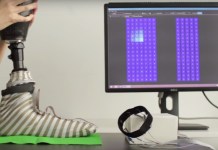US space agency, National Aeronautics and Space Administration (NASA) is all set for a launch of its first ever mission OSIRIS-REx to return a sample asteroid to Earth on 8 September from Florida Cape Canaveral Air Force Station. The spacecraft will take around two years to enter into orbit near Earth asteroid 101955 Bennu and plans return samples to Earth on September 24, 2023.
The mission helps scientists to investigate about the formation of planets and the beginning of life. According to NASA statement on Wednesday, This will also improve the understanding level of the asteroids which could impact Earth. The Origins, Spectral Interpretation, Resource Identification, Security-Regolith Explorer (OSIRIS-REx) spacecraft will travel to the near-Earth asteroid Bennu and get a sample back to Earth for in-depth study.
NASA Trains Astronauts Underwater For The Mars Mission
OSIRIS-Rex will go with an aim to map its surface and collecting, identifying and returning pristine samples of high science value. The mission serves an example for the quest to study solar system and beyond to understand our place in the universe.
“The launch of OSIRIS-REx is the beginning a seven-year journey to return pristine samples from asteroid Bennu,” said Dante Lauretta, OSIRIS-REx Principal Investigator, University of Arizona, Tucson. “The team has built an amazing spacecraft, and we are well-equipped to investigate Bennu and return with our scientific treasure.” He added.
NASA’s Juno Mission: First Human Made Spacecraft Intersects Into Jupiter Orbit
Asteroid Bennu which measures a diameter of 1640 feet was chosen for its size, accessibility and composition. Scientists expect Bennu holds essential clues to the origin of water and organic molecules which made their way to Earth and created conditions for the existence of life in a course of time.
The 2,110 kg space craft will be launched aboard an Atlas V 411 rocket will begin on September 8 and reaches asteroid in 2018. After a careful survey, Bennu characterizes the asteroid and locates the most relevant sites. With the help of robotic arm, OSIRIS-REx will collect between 60 to 2,000 grams of surface material and return the sample to Earth via a detachable capsule in 2023.














